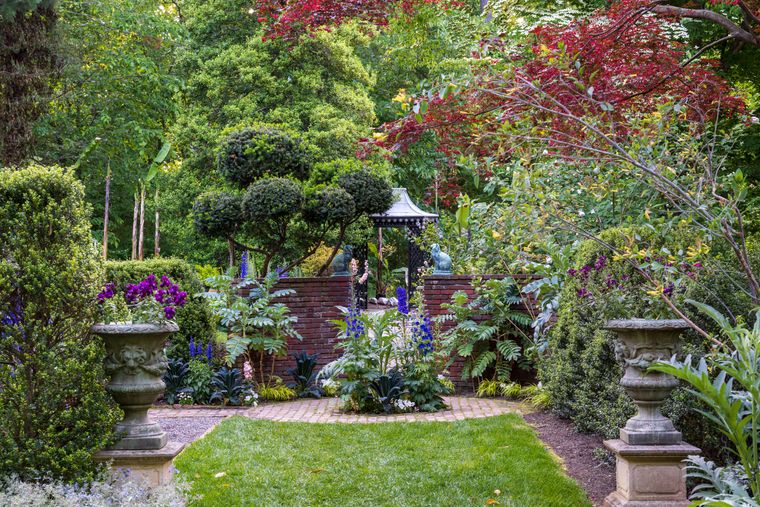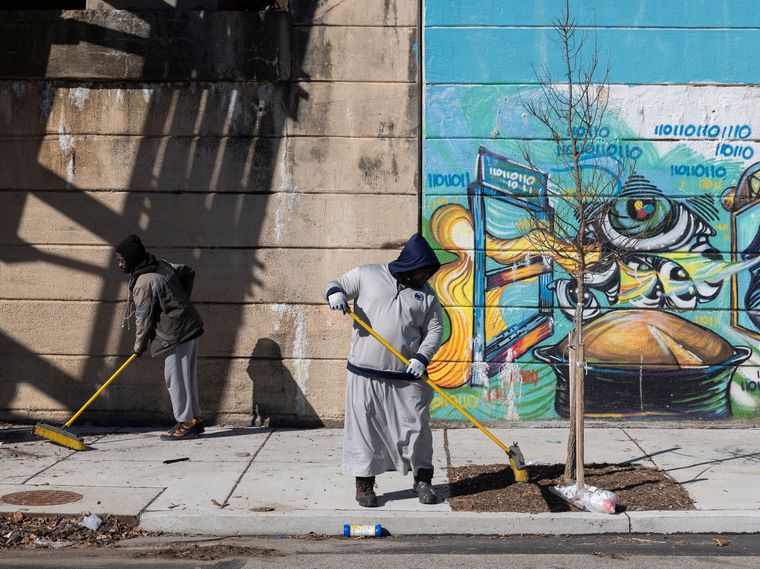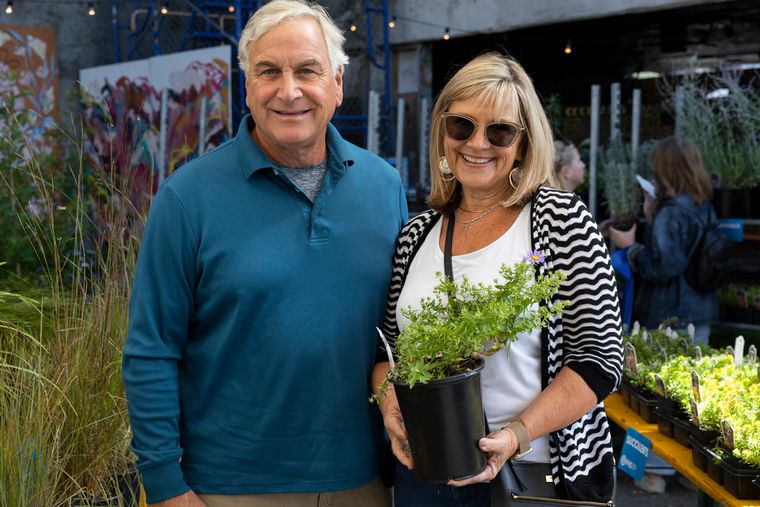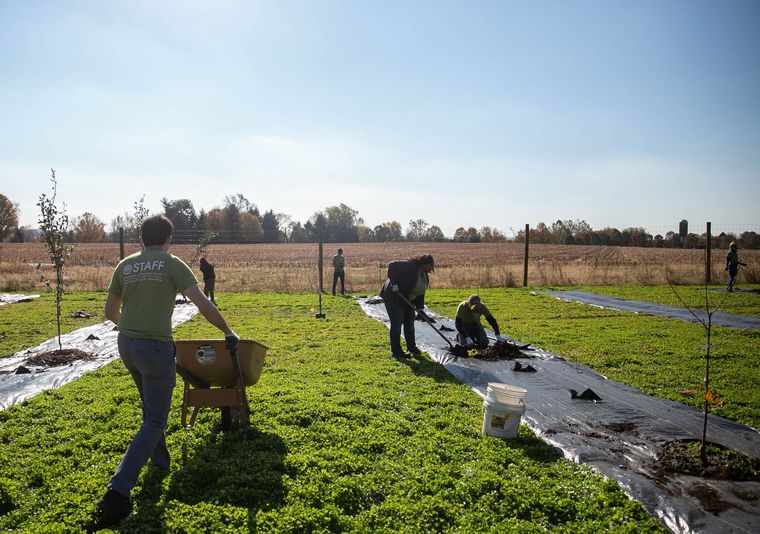



Gardening for the Greater Good – July 2019
Press Releases
gardening for the greater good
community gardens

If you find yourself in Summer Winter Community Garden in West Philadelphia, be sure to pick a fresh Japanese red plum from the trees. When eaten straight from the branch, its deep flavor is a reminder of why we celebrate fruit trees each summer.
This time of year, local trees are brimming with flavorful, versatile fruits. Branches hang heavy with peaches, plums and cherries, and even overripe, fallen fruit finds purpose creating food for birds and groundhogs. The bounty of fruit season is familiar to us all, but in our communities, fruit trees are more than just delicious.
According to Joe Revlock, coordinator of volunteer services at Summer Winter, fruit trees hold an abundance of lessons for gardeners. He believes that the symbiotic relationship between some trees –including cross-pollination and communication through fungal networks—demonstrates how gardeners can also benefit from sharing ideas and growing techniques. “I’m sure that the shared benefits of the soil under tree roots is very analogous to the intermingling of our cultures and our tastes,” says Joe.
Perhaps the synergy between trees is exactly why orchards work so well in community gardens. At Summer Winter and gardens across the city, the benefits of partnership are obvious during fruit harvest season. Local favorites like peaches, pawpaws and juneberries are best enjoyed in the company of others, with recipes shared through friends and family.
Organizations like Philadelphia Orchard Project understand the importance of sharing the delight of fruit trees. In fact, they dedicate an entire week each June to “Juneberry Joy,” an initiative that aims to bring attention to the native juneberry (also known as serviceberry or saskatoon). City-wide harvests and partnerships with local businesses and restaurants encourage people to understand the unique plant, and more importantly, to eat it.
“These gatherings are a really good way of getting community members together. Having someone show you how to harvest is pretty invaluable because once you do it, you can feel more comfortable doing it by yourself,” says Sara Ozawa, PHS community outreach and engagement specialist serving the City Harvest and NGT networks.
At their core, Juneberry Joy and the PHS gardens program hope to educate people about making use of their harvests. Both Joe and Sara fear that a lack of understanding about fruit trees will result in the loss of their many benefits. When people opt for store-bought fruit, gardens lose the essential shade and greenery provided by local trees.
“Native fruit trees serve multiple purposes by providing habitat for native species and providing food for people as well,” explains Sara. “That provides really great value since there is such an issue with food access in this city.”
While providing shelter for animals, fruit trees also create a perfect environment for shade-loving plants, which maximizes space in city gardens. Beyond gaining this valuable ecosystem, communities gain the shared joy of growing and harvesting something familiar.
“I think a lot of people have stories of their lives that enter into the orchard,” says Joe. “Some people grew up with a dad or a mom who introduced them to picking fruit instead of just shopping. That’s what it takes to understand the idea of the trees and how to nurture them. Learning to appreciate them and pick them is work, but it’s fun.”